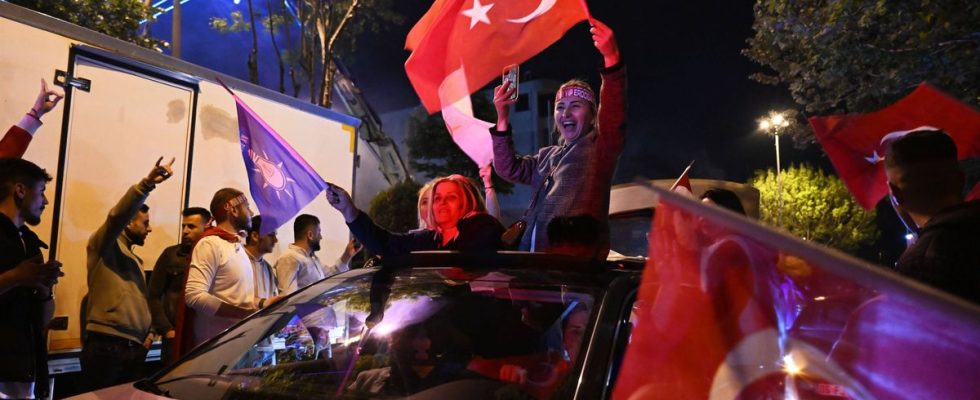For a burning ballot, we have known more eventful. Sunday, the 64 million Turkish voters were called to vote in the presidential election. For the first time in their history, the Turks will have to decide again on May 28. Because Erdogan, at the head of the country for almost two decades, is certainly in the lead after the first round (49.5% of the vote).
But his social-democratic rival Kemal Kiliçdaroglu did not give up (44.9% of the vote). At the end of a tight first round, and given the incidents that punctuated the remote votes of the Turkish diaspora (tensions in Marseilles, fights in Amsterdam, clashes in Lyons, etc.), we could expect tensions in thousands of polling stations across the country.
It has not happened. Sunday, the electoral commission had not noted any notable incident, during an electoral day marked by a massive participation, which came close to 90%. A score hailed by the European Union as “good news” and a “victory” for democracy
Whatever the outcome of the election, the incumbent president made a promise: to “respect” the verdict. The proof that there are real democratic markers in a reputedly authoritarian regime?
A strong turnout, but a campaign “marked by a lack of fairness”
Not so sure. Because, if “the electoral question is well digested by the Turkish voter”, other reasons for concern persist according to Samim Akgönül, director of the Turkish studies department at the University of Strasbourg. “The act of voting works well. But the election campaign is marked by an absence of fairness in terms of speaking time. Otherwise, after the vote, the entire process of counting, communication, declaration and validation is in the hands of the state apparatus, which is won over to the current power. It is a problem”, notes the political scientist.
The lack of transparency in the democratic process, Tuna Altinel experienced it in her flesh, a few days ago. This teacher-researcher in mathematics from the University of Lyon-1, activist of the pro-Kurdish party HDP (banned from elections), was an assessor in Lyon on behalf of the YSP, the party of the green left acquired by the opposition candidate Kemal Kiliçdaroglu .
Tuesday evening, May 9, he claims to have been taken to task in Décines, with three other assessors, by activists from Erdogan’s party. The teacher received beatings that resulted in several days of ITT, and followed intimidation, while the vote was closed. Several complaints have been filed.
So for this human rights activist, returned to France after being detained for two years in his country, it is difficult to believe in a democratic relaxation. “The very high turnout can also be seen as a lack of democracy, because people see it as the only possible way out,” he says. There is a certain tradition of voting, but the trend is becoming more and more extremist”.
“Erdogan likes to pretend to play by democratic rules”
With this in-between rounds, the Turks open a new part of their electoral life. With, on May 28, a possible upheaval, and a questioning. If Erdogan loses the election, will he accept the transition, as he assures? “Turkey’s political structure is solid enough to allow for the least radical transition possible,” reassures Samim Akgönül. On the other hand, there can be a tension between the executive power and the legislative power.
Especially since the country could move towards cohabitation, the AKP, the party chaired by Erdogan, having won the majority of seats in the Assembly, which was played on Sunday, at the same time as the presidential election. For Tuna Altinel, the opinion is clearer, but the conclusion is similar. “Yeah, I think it can be okay. Erdogan likes to pretend to play by democratic rules”.
The mathematician’s fears focus more on the holding of the second round, in Lyon. “We plan to warn the town hall of Décines, we also want to bring the prefecture of Lyon,” he explains, already busy securing the polling station.

